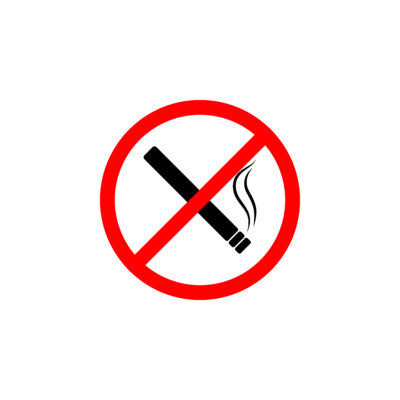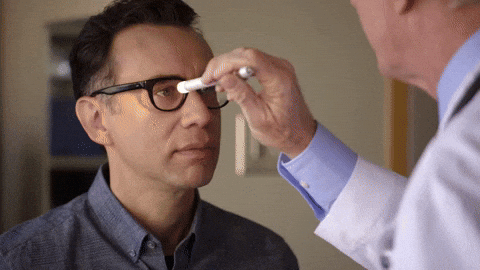We may live in one of the closest things to paradise (it’s true!) but it doesn’t mean you can skimp on taking care of your eyes. Not sure what you can do to keep your eyes in good shape?
Keep reading for some helpful comprehensive eye care tips!
1. Stay hydrated
You already know that you need at least eight, eight-ounce glasses of water a day, but did you know it’s good for your eyes as well? If you want to avoid dry eye syndrome, staying hydrated is a big deal!

And even if you’re not a big fan of drinking water, you can stay hydrated in other ways.
Try incorporating some of these foods in your diet to keep your skin glowing, eyes bright, and heart-healthy:
- watermelon
- strawberries
- lettuce
- cucumber
- oranges
- cantaloupe
- peaches
Want to go the extra mile? Try putting some of these healthy, hydrating foods in a smoothie when you’re on the go!
2. Schedule regular eye exams
For some reason, it seems to be believed that only people who wear glasses or contacts need eye exams. This is not true!
If you are between 18 and 60, you should have an eye exam at least every two years. If you wear glasses or contacts or know you have a family history of eye disease, you may need to go every year.
If you aren’t sure, ask an ophthalmologist at Sugiki Portis Yim Eye Center! We’re happy to help you figure out the frequency of when you should be seen for comprehensive eye exams.
3. Keep screen time to a minimum
This can seem difficult, but it is possible. Looking at screens all day isn’t helping your eyes. In fact, it’s hurting them.
Wondering why your eyes feel tired at the end of the long workday? Your iPhone, iPad, or Apple Watch may be to blame, at least partially.

There’s no way to go off the grid completely, so what can you do to keep your eyes healthy when you look at screens? One thing to try is the 20-20-20 rule.
It’s pretty simple! For every 20 minutes you spend looking at a screen, you should look at something that’s 20 feet away for 20 seconds.
The idea behind this rule is remembering to take breaks and blinking enough. What does blinking have to do with it?
Looking at screens subconsciously makes us blink less. By blinking less, it makes our eyes drier and the tear film doesn’t cover as much of the eye.
If you do this too much, it could lead to dry eye syndrome. Who knew that blinking was so important?
4. Don’t smoke

Everybody knows they aren’t supposed to smoke, but here’s one more reason not to: it’s really bad for your eyes! Smoking is one of the number one causes of dry eye.
You’re also significantly more likely to develop cataracts early on if you’re a smoker. The same goes for age-related macular degeneration, diabetic retinopathy, and uveitis.
The good news? If you quit smoking, your risk of developing these eye conditions drops. It’s never too late to quit!
5. Wear polarized sunglasses outside
Everyone wears sunglasses because they look cool, right? Not exactly.

Sunglasses, especially polarized sunglasses, are your best defense against the sun’s UV rays. UV rays seem harmless since you can’t see them, but they can do a lot of damage to your eyes.
Polarized sunglasses not only protect against UV rays, but they also cut out glare. Cutting out glare is important because the sun’s rays can bounce off objects and surfaces.
These could be a car bumper, a window, or the ocean next to you. If you’re not protected against glare, you could still be affected by the UV rays.
Not sure if you’re wearing a pair of polarized sunglasses? There’s usually a small label on the side or near the lenses that will say if a pair is polarized or not.
6. If you wear glasses, always have a backup pair
This is more common sense, but it never hurts to reiterate! If you wear glasses, you should always have a backup pair, just in case.
You never know where you’re going to be or when you’ll need them. Glasses are easy to break or damage.
Even without meaning to, you can scratch them or drop them on the floor and break them. Oops! Now you’re out a pair of glasses!
Yes, the same applies even if you wear contacts. If you’re traveling anywhere, always bring spare contacts and spare contact lenses.
The same goes for contact lens solution as well. It’s better to be over-prepared than under-prepared!
7. Stay active

Healthy body, healthy mind, healthy eyes. It all goes together. It’s hard to be healthy if you leave a sedentary lifestyle.
You don’t have to run a marathon (unless you want to) but make an effort to get up and move. This is something that you should do every day.
Part of the reason for this is to avoid developing diabetic retinopathy. The only way you can develop diabetic retinopathy is if you have diabetes.
Of course, there are other things at play besides staying active when it comes to diabetes. But with type 2 diabetes, you’re more likely to develop it if you’re obese.
It’s easier to avoid this if you stay active and work up a sweat regularly. Your eyes and body will thank you!
8. Eat healthy
While you’re staying active, make sure you’re also eating healthy as well. After all, one of these without the other won’t do much!
Your eyes get the most out of foods like:
- green leafy veggies: kale, spinach, broccoli, and collard greens
- fish that’s high in omega-3 fatty acids: salmon, sardines, mackerel, and tuna
- fruits high in vitamin C: lemons, berries, oranges, and grapefruits
- fruits and vegetables with color: tomatoes, carrots, bell peppers, cantaloupe, corn, pumpkin, and strawberries

If you can’t add more of these foods into your daily meals, you can add them in as supplements instead. Try omega-3 supplements, fish oil, or black currant seed oil to get the same benefits.
9. Get enough sleep
Always feel tired and run down? Your eyes feel it too. If you aren’t getting enough sleep, even your vision may be suffering.
On average, adults should be getting anywhere between 7-9 hours of sleep per night. When you don’t get enough sleep, your eyes don’t look their best.
They are often red or bloodshot and may become sensitive to light. You may also experience blurred vision or itchy eyes that you want to rub.
To prevent this, get enough sleep, or see someone who can help you get more sleep.
10. See your eye doctor if something is wrong
You know your eyes well. You know when they are in good shape, and you know when they might need some TLC. If it seems like something is wrong, see your eye doctor.

It may be nothing, but with eye conditions, they often start small. When caught early, eye conditions are much easier to treat and diagnose.
Don’t have an eye doctor? Not sure when your last comprehensive eye exam was?
Schedule an appointment at Sugiki Portis Yim Eye Center in Honolulu, HI today! We’ll help you get your eyes back on the path to seeing clearly!





